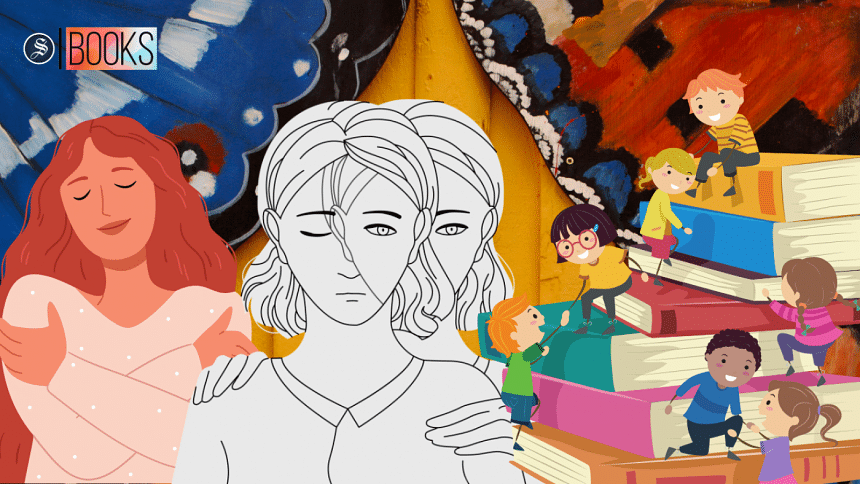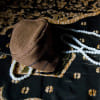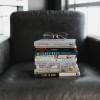The bitter-sweet world of self-help books

When I logged into my YouTube feed to type in "Are self-help books good or bad for you?", I expected a collision of content trying to convince me that a particular self-help mantra changed the lives of a respective content creator. To my surprise, I found an overwhelming amount of content discouraging the consumption of any kind of self-help books. This begs the question: Why, then, is the self-help category at the forefront of every book fair or online book selling pages? Is the discouragement unprecedented, or is the self-help book a cleverly disguised trickster? In order to answer these questions, we need to detour onto the emergence and sustenance of the self-help cult following.
The concept of self-improvement is by no means a new one, rather the notion is in the foundational structures of moral well-being. The centuries old Socrates commandment, "Know Thyself" is at the very crux of what self-improvement consists of. It is an exploration into oneself, and as a result, our outlook and projections against our external surroundings. Self-improvement forms a significant portion of philosophy, most notably the philosophy of Stoicism. A watered-down impression of Stoicism is the practice of cultivating self-control and fortitude to overcome any extreme or destructive emotions. If we were to look ahead a little, there are two particular books which have popularised the concept of self-improvement: The Alchemist (first published 1988) by Paulo Coelho and Man's Search for Meaning (1946) by Viktor Frankl. However, these two books have a discrepancy with the self-help books that are currently being marketed. The discrepancy lies in the fact that these two books read more like a narration, rather than a tabulation list.
In Bangladesh, there has been a recent surge of "the self-help craze." Bookshops, online bookstores, book-fairs all have a separate category entitled 'self-help and motivation,' which solidified their position in the bestselling lists. Then there are the motivational speakers who promote anecdotes, create peppy videos, and make public appearances to preach their motivational mantra. Because of the recent popularisation of self-help, an astounding amount of canonical self-help texts have been translated into Bangla, thus further hardening their hold on the market.
So, why the hate? After all, self-help books on paper are supposed to fulfil two basic goals—it generates more readers, and it helps cultivate self-improvement. The problem arises when self-help is contrasted with literary fiction. Generally speaking, literary fiction is more difficult to read, with much more complex structures in comparison to self-help. The basic premise of a self-help text is that it is packaged neatly into an accessible medium that anyone can understand. On the topic of self-improvement, my concept is that there is a multifarious way to improve oneself. The long-standing debate with self-help is that it is easy to read, but difficult to implement. In the case of literary fiction, it is a journey into the complex—where the readers take a dive into a plot, and hopefully come out the other end with something profound and life-changing. The point of literary fiction is not solely to improve oneself, but rather it is a pleasant by-product. In Bangladesh, where therapy is scarce and often a luxury, self-help books prove to be a band aid on the wound towards emotional healing. But of course, apart from its humanistic effects on its readers, self-help is simple and concise.
Now, on to the topic of readership. A varying number of "non-readers" get into reading and seek access to the world of literature through self-help reading. In hindsight, some of these "self-help readers" later migrate onto reading other works of fiction and non-fiction. This is a good point for the self-help department, which is actively creating a wider set of readers. However, the problem arises when the bestselling self-help books overshadow literary fictions. The booksellers of our country will only then bring in books that become commercial successes, and naturally the more "complex and critical" literary fictions get thrown into the background. The readership of our country suffers in the hands of the commercial success of self-help books. It inverts the reader's expectations out of literature–where only snappy and packaged pieces are appreciated, at least commercially. When self-help becomes a substitute for literary fiction in stalls and bookstores, it discourages both readers and writers to pick up on the nuances of storytelling. Because of its success, there is a strange crossover of the self-help genre with literary fiction, one placed next to the other in many bookshops. This blurring of the two is disadvantageous, because self-help cannot be a form of literary fiction, or a substitute.
In recent times, with the advent of technology and the ever-present lurking of capitalism and 'hustle culture', the place of literature is often put into question. Some may even argue that art and the practice of creating art is slowly dying! In this questionable sphere, the self-help genre has created a comfy place for itself—it is marketed as an instant solution to our many individual struggles. From that angle, it is much more difficult to find a direct use for literary fiction. After all, people now are more impatient; they want results instantaneously. But literary fiction is a slow burn—it slowly creeps into the fissures of our existence and settles its roots in our consciousness.
Therefore, although it is encouraging to find that self-help has brought in an incursion of readers who are interested in self-improvement; it has become a quiet threat to the readership of our country. The commercial success of self-help overshadows the growth of storytelling. But more potently, it overturns our expectations of literature.
Tasnim Naz has an endless love of literature, both inside and outside the classroom in which she teaches. Reach her at [email protected].


 For all latest news, follow The Daily Star's Google News channel.
For all latest news, follow The Daily Star's Google News channel. 










Comments